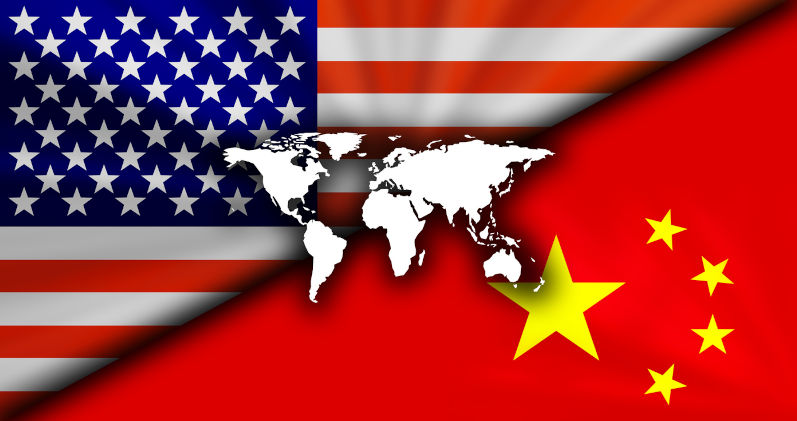Is peaceful cooperation a hopeless pipe dream?
August 19, 2024
According to Matt Pottinger, ‘a China expert and deputy national security adviser in the Trump White House…anyone who has entertained the idea of stable ties with Beijing is really smoking dope.’ If that’s what it takes, it might be time to light up.
The quotes above come from an article by Peter Hartcher who, in the face of some depressingly stiff competition, has made himself into one of Australia’s most prominent and vociferous China hawks. Bizarrely, other prominent members of this influential group, like former Secretary of the Department of Home Affairs, Michael Pezzullo, not only fret about the supposed threat posed by the PRC, but also about the dangers of ‘self-censorship and reticence’ if the government pursues a more stable relationship with ‘belligerent communist China’. Not much danger of that in Mike’s case, unfortunately.
Perhaps the most startling aspect of Pottinger’s flippant dismissal of anyone who is not a card carrying ‘realist’ when it comes to China is the light it shines on the hard-headed types who make domestic, foreign and strategic policy on our behalf. They really do inhabit a world in which trying to establish productive working relationship with our major trading partner is seen as a major sign of weakness, inconsistency and/or living in a dream world.
Given that Pottinger worked for Donald Trump he’s not the most obvious person to be citing as an authority on how to deal with China. After all, Trump famously privileges his ability to establish productive relationships with some of the world’s leading despots and authoritarians over the sorts of ‘structural’ factors that people like Pezzullo emphasise. Pot-smoking peaceniks might find the Trumpian approach to international relations a bit too impulsive and hubristic for comfort.
Or then again, they might not. One of the problems that China doesn’t suffer from to anything like the same extent as the US, of course, is drug abuse. Despite the fact that there have been more than 700,000 drug deaths in the US since 2,000 (more than 10 times the number of Americans who died in the Vietnam War), something like 50% of Americans admit to having used illicit drugs. Perhaps altered states of consciousness are the best way of handling the reality of a Trump presidency. It might help explain Trump’s continuing popularity with his rusted-on supporters.
Yes, that’s a flippant point, too, but as P&I’s founder, John Menadue, points out, the US is the most violent and aggressive country in the world. In 2021, nearly 50,000 Americans died from ‘gun-related injuries’, nearly half of which were suicides. Little wonder, perhaps, that so many of its citizens choose to self-medicate and temporarily escape the reality of life in an increasingly dysfunctional, polarised society where oligarchs, populists and plutocrats dominate the political and economic landscape. It’s far from clear that this will change even if Kamala Harris is elected president¾even if Trump’s gun-toting supporters accept the result, of course.
China’s rulers may be bossy, interventionist, and allergic to criticism, but at least they are fairly predictable and thus far don’t have a track record of violent foreign invasion. If the US had a more cooperative relationship with China, they may be able to persuade the PRC to crack down on the growing export of fentanyl, which claimed another 70,000 American lives in 2022 alone.
It’s also worth remembering that the drug trade is based on supply and demand: the ‘drug problem’ and the growth of the gang violence in Mexico and elsewhere that is causing so many to flee South America, is primarily caused by Americans’ insatiable appetite for dope. Somewhat ironically, the market forces that American foreign policy has helped to universalise are demonstrating their unsurpassed ability to deliver whatever it is that the customer may desire.
Sometimes it’s a bit hard for even the most powerful leaders to connect the dots, though. It may be especially difficult for the likes of Vladimir Putin, Xi Jinping and Trump to do so given they have all displayed signs of incipient megalomania and an unshakeable belief in their own historical significance. Perhaps they need a little help coming to terms with their own limitations and even insignificance in the larger cosmic scheme of things.
Interestingly, there’s good scientific evidence that some drugs, principally the psychedelic variety, can be very helpful in treating a range of psychological disorders, especially depression. The principal sensation users report is a feeling of being part of something much bigger than themselves, which might be just the thing for some of the world’s more self-obsessed leaders who seem incapable of thinking about the very real and immediate problems the planet currently faces.
I realise that’s just the sort of irresponsible nonsense you’d expect from an ageing hippie, but the realists have got us where we are today: facing a climate apocalypse, unable to stop the slaughter of women and children in pointless wars on two continents, and spending colossal amounts on exotic weapons systems that are designed to facilitate what Richard Marles euphemistically calls ‘ impactful projection’ - or wiping out millions of innocent Chinese people if deterrence fails and war breaks out.
When dream worlds seem more attractive than reality, no wonder so many people are turning on and tuning out.

